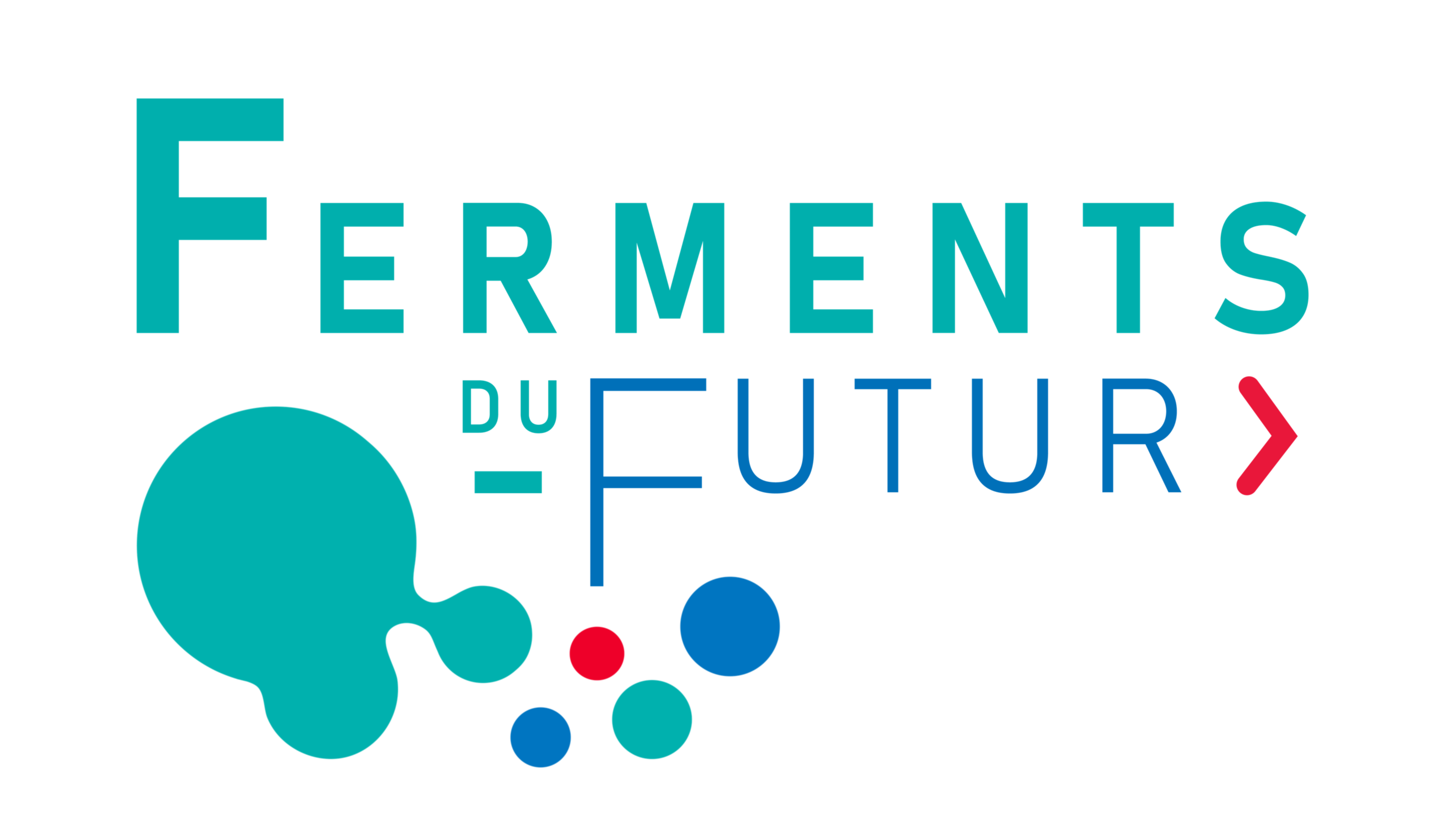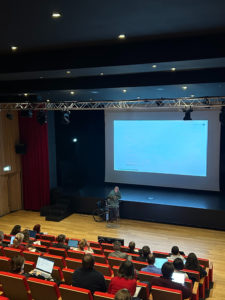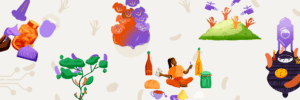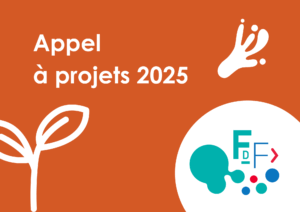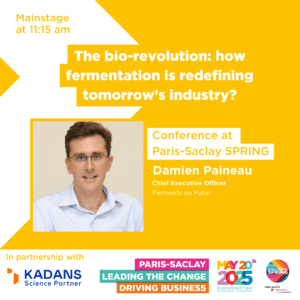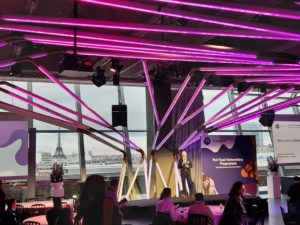
Review of the 2025 Call for Projects
A 2025 research call exclusively thematic!
Ferments du Futur (FdF) launched its 3e appel à projets précompétitifs en décembre 2024. This research call is renewed annually under the same conditions and is open to all French public research institutions as well as Technical Institutes affiliated with the ACTIA. The call seeks to overcome scientific and technological barriers that slow innovation in the fields of ferments, fermented foods, and food biopreservation. This year, the call was exclusively thematic.

In the Thematic section, the topics addressed concerned one of the following 3 themes:
-
Predictive models in microbial ecology, with the possibility of using the SIDURI data warehouse:
- Identify microorganisms in silico, alone or in combination, that fulfill target functions, taking into account fermentation matrices, processes, or environments; exploitation of omics data in particular.
- Predict health, sensory, safety effects... of microorganisms, alone or in combination. -
Optimized management of fermentation processes, including precision fermentation:
- Develop innovative sensors: online, connected, continuous, durable…
- Develop digital twins and model fermentation management.
- Optimize fermentation processes along the entire value chain, including breakthrough approaches (use of CO2, continuous fermentation…). -
Consumer perception of fermentation and fermented products:
- Understand and quantify the barriers and drivers to the consumption of fermented products, relying on original methodological approaches.
- Test approaches to enhance the value of fermented products (narratives, labeling, etc.).
Once again this year, the selection process took place in two stages:
- A letter of intent (2 pages) submitted at the enf of February. This year, wee received 18 letters ! Members, through the Strategic Orientation Committee (COS), selected 10 letters to proceed with the selection process.
- An exploratory project(5 pages) co-developed with private FdF members, submitted mid-May and presented orally during the major oral session in June.
Following the oral presentations, 6 research projects were selected. Each project lasts 2 years and has a maximum budget of €250,000, totaling €1.5 million allocated to French academic research by FdF for this 2025 call. Project start dates are planned between October 2025 and January 2026. The creation of project committees will ensure the connection with the consortium, participation in strategic directions, oversight of deliverables, and will play a key role in the strategy for valorizing results.
Researchers, see you in November 2025 for the 4th edition!
2025 Laureates: A Wealth of Projects and Research Institutions Honored
Varied topics such as consumer perception of fermented foods (#CONSOFF #FERMACO), synthetic biology (#BAMBI) and directed evolution (#OPTIFEP), the use of digital twins (#SHADOW), and the development of sensors for solid-state fermentation (#SSFSENSORS).

BAMBI: Bioproduction of microbial bio-colorants for food and study of consumer perception.
Bioproduction of Awesome Microbial Bio-colorants for consumer Insights
The color is an essential element of food, exerting a decisive influence on consumers’ purchasing choices.
Faced with health concerns related to synthetic colorants and food additives, especially due to their potential toxicity, the demand for natural alternatives continues to grow. The BAMBI project aims to study both the production and consumer acceptance of food colorants derived from microorganisms.
Within this framework, we mobilize synthetic biology and precision fermentation to produce various colorants from low-cost agro-industrial co-products, by modifying the yeast Yarrowia lipolytica, a microorganism considered safe for health. We also emphasize the stability of strain production, with BAMBI aiming to develop innovative know-how for producing food additive alternatives through fermentation, using a sustainable process that contributes to the circular bioeconomy.
Simultaneously, consumer perception of these bio-engineered food colorants and additives will be analyzed. The study will focus on the influence of knowledge, perception of risks and benefits, and how these factors affect purchase intention and consumption willingness for each colorant. The expected results will provide valuable insights and operational recommendations for industry actors.
Project led by AgroParisTech, INRAE, Université Paris Saclay, in collaboration with CIHEAM Montpellier, CIRAD, L’Institut Agro Montpellier, and IRD.
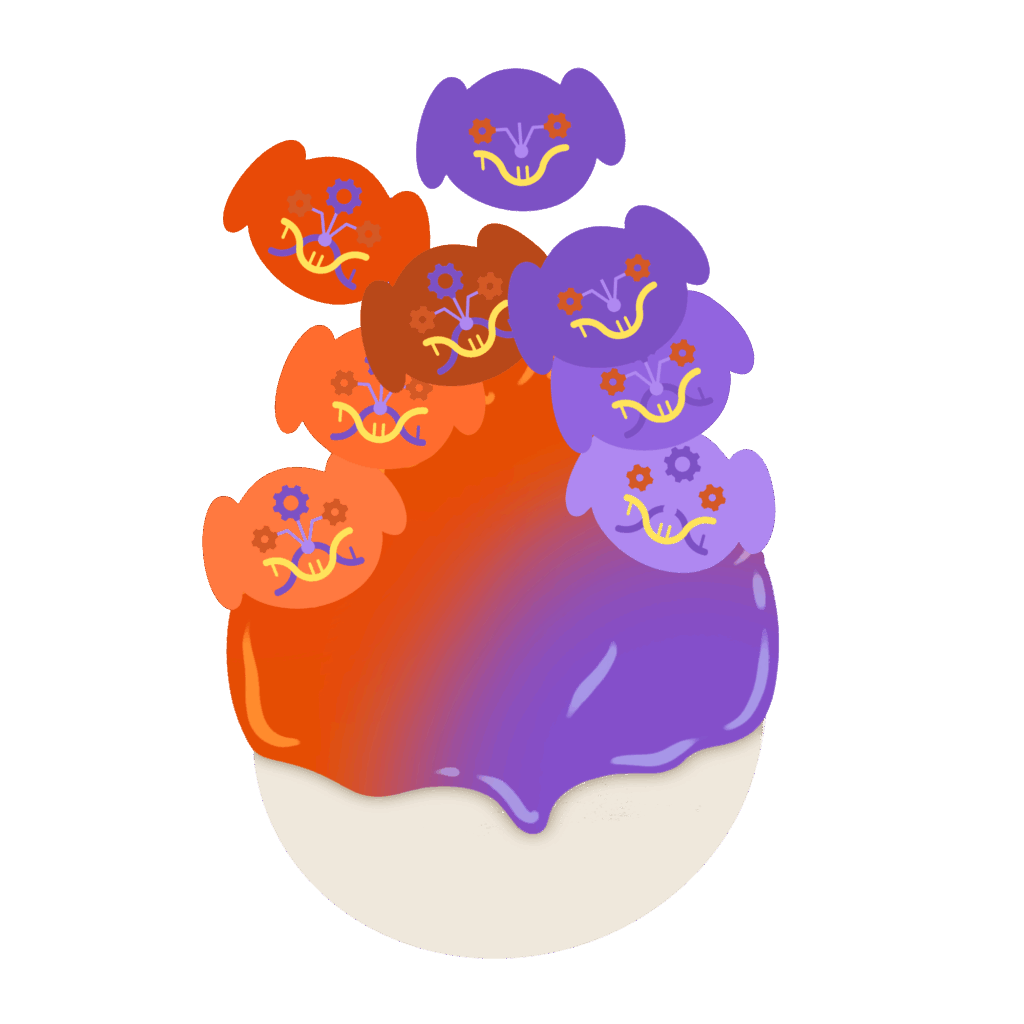

CONSO+FF: Understanding consumer expectations and behaviors toward fermented products.
Understanding consumers’ expectations and behaviors regarding fermented products
Fermented foods contribute to a healthier and more sustainable diet thanks to their sensory profile, extended shelf life, and health benefits. However, consumer acceptance remains uneven due to varying levels of knowledge, perceptions, and cultural familiarity. The Conso+FF project aims to identify the main factors and barriers influencing consumer behaviors toward fermented products, whether traditional or innovative. This project adopts a multidisciplinary and experimental approach combining online surveys of consumers and experts, laboratory experiments assessing preferences and willingness to pay, focus groups for co-creating fermented menus, a real-life study in an experimental restaurant observing consumer choices and preferences based on information presented, and finally, a microeconomic model to evaluate the impact of policy tools such as labeling or subsidies. The project will provide concrete strategies to increase the appeal and accessibility of fermented foods, promoting their adoption in daily diets and contributing to the transition of the food system.
Project led by AgroParisTech, INRAE, Université Paris Saclay.
FERMACO: Fermentation and Innovation in Food: Consumer Acceptability and Perception
Fermentation and food innovation: consumer perception and acceptability
Fermented foods are generating increasing interest, straddling tradition and innovation, in a context where health, naturalness, and sustainability strongly guide food choices. However, consumer acceptance remains mixed and depends on multiple factors.
This project aims to better understand how consumers perceive different types of fermentation—whether related to the microorganisms used (lactic, alcoholic, fungal, acetic) or production methods (artisanal vs. industrial)—and how these perceptions influence the acceptance of fermented products. Particular attention will be paid to comparing foods already familiar in France (bread, vinegar, sauerkraut) with emerging ones (kimchi, water kefir, kombucha).
The study will identify key motivations (health benefits, authenticity, sensory appeal) as well as barriers (confusion with ultra-processed foods, distrust of industry, reluctance due to taste or novelty), using complementary approaches: cultural, social, cognitive, behavioral, sensory, economic, and marketing.
Simultaneously, the project will explore concrete levers to valorize fermented products, including educational communication strategies, adapted labeling, and marketing tools co-created with consumers through participatory workshops.
The expected results from this interdisciplinary work will provide agro-food stakeholders with keys to develop innovation and marketing strategies aligned with consumer expectations and perceptions, thereby promoting broader, informed, and sustainable adoption of fermented foods.
Project led by INRAE, Université Clermont Auvergne, VetAgroSup, in collaboration with CNRS, CHU Dijon, Grenoble INP, and Université Grenoble Alpes.


OPTIFEP: Optimization of fermentation/starter evolution processes
Optimization of Ferment/Starter Evolution Processes
The adaptation of microorganisms to plant-based matrices represents a major challenge for food fermentation. Currently, few strains are capable of fermenting the specific carbohydrates found in plant matrices. Traditional adaptation approaches mainly rely on Darwinian evolution through successive cultures: they improve phenotype specificity to the environment but have significant limitations, notably in duration, cost, and labor requirements.
The OptiFEP project aims to develop an alternative strategy that is rapid, efficient, and cost-effective for obtaining adapted microbial strains. This approach is based on continuous fermentation in a chemostat, along with adaptation monitoring using advanced analytical tools for microfermentation (BioLector XT) and typing (MALDI-TOF Biotyper).
The ultimate goal is to propose a standardized, reproducible method adaptable to various plant substrates and microbial species, offering promising prospects for optimizing fermentation of plant-based matrices.
The project is led by INRAE, FdF, Université Clermont Auvergne, VetAgroSup, in collaboration with PEM2i.
SHADOW: Towards a digital twin to improve the management of methanization
Towards a digital twin for the improved operation of anaerobic digestion
Methanization is a key process to achieve the European goal of producing 35 billion m³ of biomethane annually by 2030. However, its optimization remains hindered by the limited predictive capacity of current models, especially during critical phases such as inhibition, overload, or restart after failure.
To address this challenge, the shADow project aims to develop “digital shadows” of methanizer reactors: real-time predictive models integrating microbiological data with the physicochemical parameters traditionally used.
In the first phase, several variants of an anaerobic digestion model will be developed and compared. In the second phase, their predictive performances, particularly under stress conditions, will be evaluated through monitoring of laboratory methanizers subjected to various disturbances. The approach aims to improve process control, enable earlier detection of malfunctions, and facilitate the implementation of recovery strategies by incorporating microbiological data.
By proposing a digital integration of microbiome biology into process modeling, shADow is a proof of concept for digital hybridization. It paves the way for digital twin development and offers broader application prospects to other bioprocesses studied within the FdF initiative.
Project led by INRAE, Université Paris-Saclay, in collaboration with CNRS and INSA Toulouse.
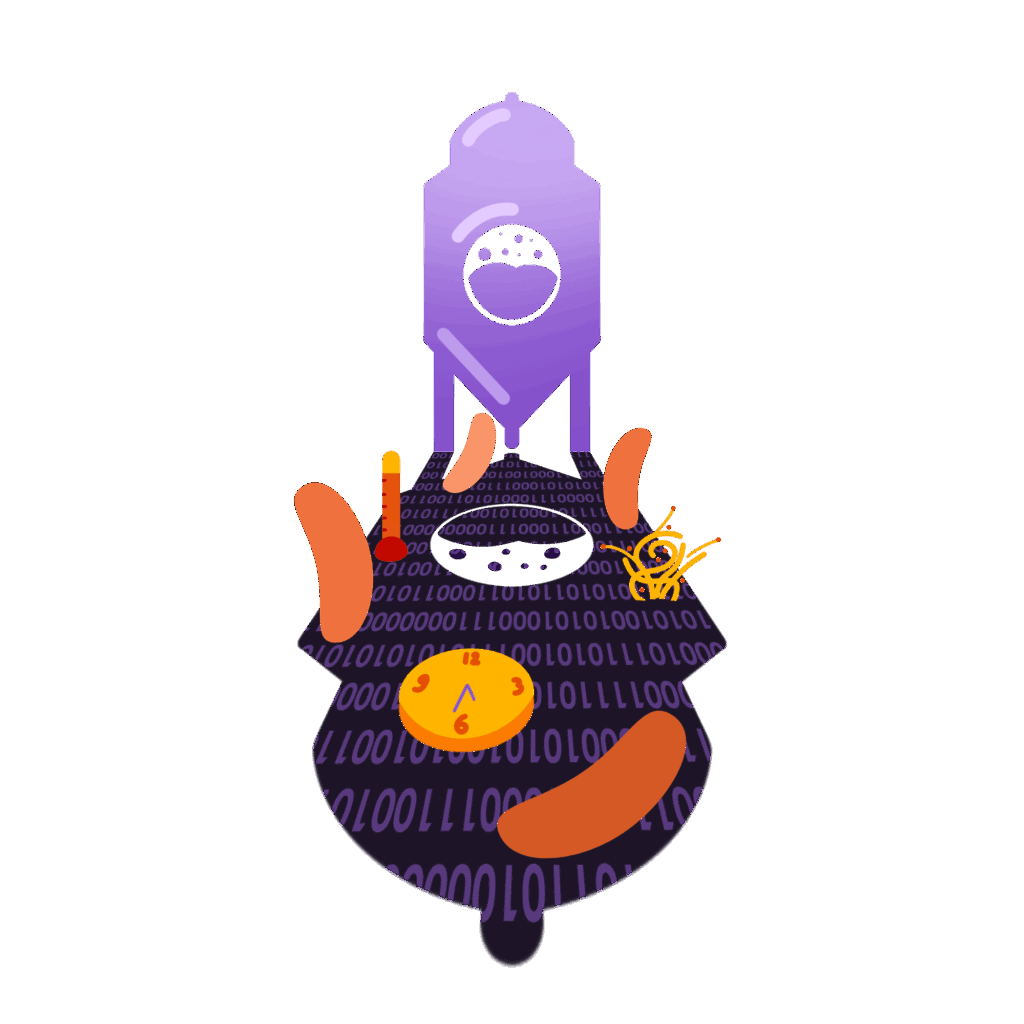

SSFSENSORS: Innovative combination of sensors for controlling heterogeneities in solid-state fermentations
Innovative combination of sensors for controlling heterogeneities in Solid State Fermentations
The SSFsensors project focuses on solid-state fermentation applied to food matrices, particularly split peas. This fermentation process represents a promising approach to improving the nutritional quality of food products and enabling the production of valuable metabolites such as vitamins, enzymes, and flavor compounds.
The main objective is to optimize the monitoring and control of fermentation heterogeneities observed in fermenters during the growth phase of mycelium or bacterial cultures. To achieve this, various sensors and monitoring devices will be deployed to more precisely characterize the spatio-temporal evolution of these heterogeneities within the substrates. The data collected will support the development of predictive models aimed at improving the understanding of these phenomena and ultimately reducing their occurrence.
For instance, the project aims to anticipate the appearance of filamentous fungal spores, which may be undesirable in a food product or, conversely, beneficial for the production of biocontrol agents.
Another goal is to determine the optimal point at which fermentation should be stopped, once the mycelium has colonized all interstices of the medium.
In addition, the project envisages detecting the completion of mycelial fermentation in a solid substrate by estimating the amount of biomass produced through an innovative genetic material quantification method.
Project led by INRAE, Université Bourgogne Europe, L’Institut Agro Dijon, CNRS, SUPMICROTECH-ENSMM, Université Marie et Louis Pasteur, and Université de Technologie de Belfort-Montbéliard.
Chercheuses et chercheurs, rendez-vous en janvier 2025 pour la 3e édition !

